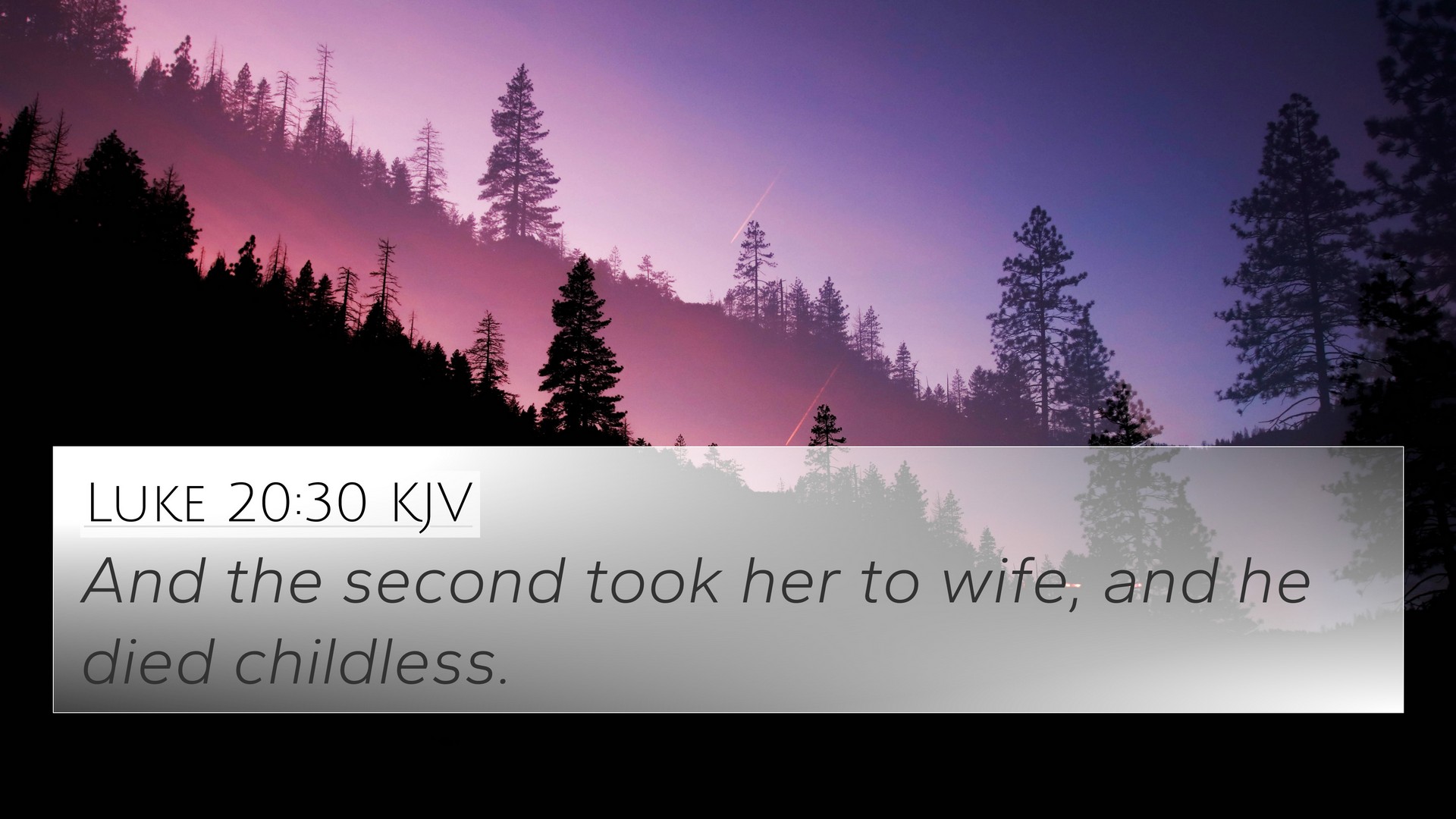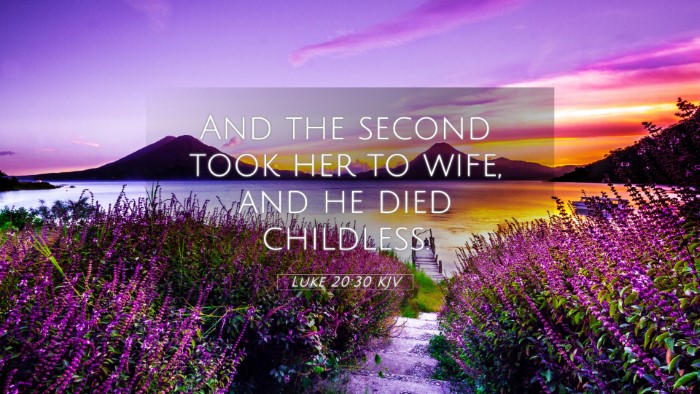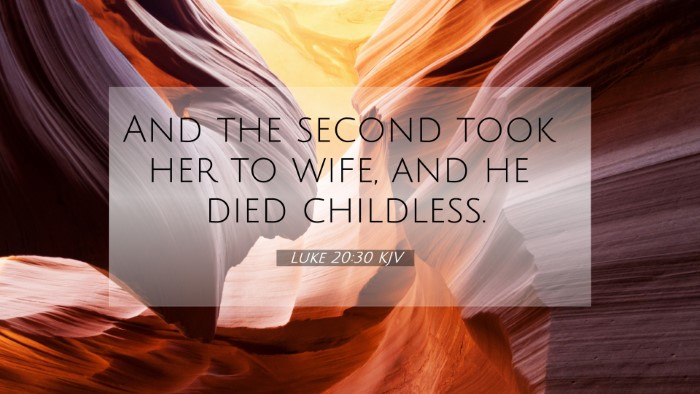Understanding Luke 20:30
In Luke 20:30, we encounter a narrative brought forth by Jesus in response to the Sadducees' inquiry about the resurrection and marriage. This verse states, "And the second (wife) died after she had no children. Let me elaborate on the implications and meanings derived from this passage, linking it to various Bible verses to provide a broader context.
Context of Luke 20:30
The setting of Luke 20:30 showcases a theological debate between Jesus and the Sadducees, who denied the resurrection. The Sadducees presented a hypothetical scenario involving a woman who married seven brothers, each dying without leaving children, to challenge the doctrine of resurrection. This scenario aimed to illustrate what they perceived as the absurdity of resurrection belief.
Commentary Insights
Matthew Henry’s Commentary
Matthew Henry emphasizes that this account illustrates the ignorance of the Sadducees regarding spiritual matters. He asserts that they fail to comprehend the power of God, who is not bound by earthly conventions such as marriage or death. Henry points out that the resurrection transforms the nature of earthly relationships, suggesting that the resurrection state is beyond human arguments and limitations.
Albert Barnes’ Notes on the Bible
Albert Barnes elaborates on the Sadducees’ challenge, highlighting their reliance on the Law of Moses while neglecting the deeper spiritual truths. He notes that the question stems from a misunderstanding of the life to come, which will not mirror earthly experiences. Barnes underscores that in the resurrection, the essence of human relationship changes, and earthly institutions have a different relevance.
Adam Clarke’s Commentary
Adam Clarke offers a perspective on the cultural practices of marriage in Jewish law, explaining why the Sadducees presented their specific question. He stresses that marriage is an earthly institution meant for reproduction and companionship, whereas, in the resurrection, the faithful will experience a different existence. Clarke remarks on the eternal nature of relationships in heaven, which surpasses earthly understanding.
Cross-Referencing Luke 20:30
To deepen our understanding of Luke 20:30, it is beneficial to explore related Bible verses. Here are some key cross-references that provide additional insights:
- Matthew 22:30 - Jesus reiterates the concept that in the resurrection, people neither marry nor are given in marriage.
- Mark 12:25 - Echoes the teaching that those who are resurrected are like angels in heaven.
- 1 Corinthians 15:42-44 - Discusses the nature of resurrected bodies, comparing earthly bodies with spiritual bodies.
- Revelation 21:4 - Promises a future without death, mourning, or decay, emphasizing the hope of eternal life.
- John 11:25-26 - Jesus declares Himself as the resurrection and the life, affirming faith in Him results in eternal life.
- Philippians 3:20-21 - Talks about our citizenship in heaven and being transformed to be like Christ's glorious body.
- Romans 6:5 - Explains how believers share in Christ’s resurrection, signifying a new life beyond physical death.
- Acts 24:15 - Highlights the hope of resurrection shared by both righteous and unrighteous individuals.
- Luke 14:14 - Speaks of the resurrection of the just, reinforcing the theme of reward for faithfulness.
- 2 Corinthians 5:1-4 - Discusses the nature of our earthly dwelling versus the eternal home prepared by God.
Thematic Connections
Examining these cross-references reveals a consistent theme throughout Scripture regarding the nature of life after death and the resurrection. The scriptures connect through the following themes:
- The nature of resurrection: Luke 20:30 parallels Matthew 22:30, emphasizing a transformation beyond earthly experiences.
- Hope of eternal life: John 11:25-26 and Revelation 21:4 both offer reassurance of life without death.
- Spiritual versus earthly existence: 1 Corinthians 15 discusses the contrast between mortal and immortal bodies.
Practical Applications
The insights from this passage and its cross-references can guide believers in understanding the profound nature of eternal life. Here are some takeaways:
- Recognizing the limitations of human understanding, particularly concerning divine matters.
- Emphasizing the significance of faith in the hope of resurrection and eternal life with God.
- Understanding the transformative power of Christ’s resurrection, which promises believers eternal existence in His presence.
Conclusion
In summary, Luke 20:30 serves as an essential verse whose understanding is enriched through biblical cross-references and commentary insights. The implications of this verse surpass mere intellectual engagement—they invite believers to embrace the hope of resurrection and the promise of eternal life. Studying these interconnected verses enhances our understanding of scripture and encourages a deeper faith in God's promises.


